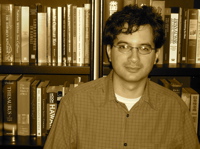
If you were in a core class this semester, you may have wondered why you were doing some projects a bit differently than the syllabus first suggested, and perhaps even a bit more work than other students had done previously. The answer is that the faculty teaching those courses are experimenting rethinking the way we do student and learning assessment. For students in the school library media specialist track, we are simply catching up with our K-12 colleagues. You’ve been talking about rubrics, learning targets, and proficiency for years, but this is new territory for many of us – including many of us on the faculty. In case you didn’t realize, PhD Programs in LIS focus on research, and assumed that teaching skills were to be learned “on the job.” Because of that most of us have our own personal pedagogical approaches. Now we are forcing ourselves to rethink how we teach and what we expect students to learn.
Associate Chair Violet Harada has volunteered to facilitate a multi-year plan to build more measurable learning outcomes into all LIS courses. We hope to do this over a 4-year period, but will assess its effectiveness at each stage, since it really is a learning environment, and we don’t want to blindly march forward. I could explain that WASC, and ALA look for evidence of assessment when they examine us, but the more important rationale is to help us think about fundamental questions, such as what learning outcomes are most important, and how well we are meeting those educational benchmarks.
I wanted to explain this to you, and also ask your patience as we retool our classes. Implementing new assessment tools into existing courses is sometimes a bit awkward, as we learn what works or what needs tweaking. In the meantime I encourage you to share your thoughts with Dr. Harada, me, or any of your professors. Once we have it down pat, assessment is all about helping you to learn, and for faculty to understand if we are successfully creating a learning atmosphere. I invite you to join our discussion. This is how we can keep LIS a living and learning organization.
(This will appear in the next issue of the ALA-SC newsletter, the Basement Blotter. Thanks to Professors Harada and Asato, and editor Karen Brown for comments).






No comments:
Post a Comment